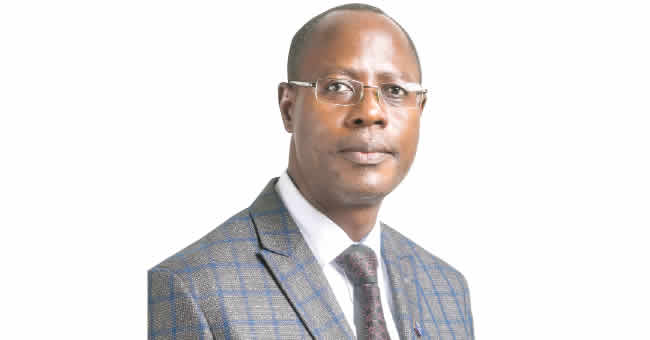Following the recent inauguration of Bola Tinubu as the new president for the next four years, what is your expectation of him on credit management and administration in Nigeria?
Felicitations on his momentous election and swearing in as the 16th President of the Federal Republic of Nigeria, which is testimony to his admirable dedication and vibrancy of Nigeria’s democracy. We also wish to extend our congratulations to Vice President, Kashim Shettima.
It is heartwarming to note that Nigeria under this leadership is moving away from cash-based economy to a credit system. We understand and appreciate your drive and passion on the premise that access to credit is essential for economic growth and development; a consumer credit system that would provide the requisite framework for Nigerians to obtain credit for basic needs.
As a chartered prestigious body of eminent credit management elites in Nigeria, the National Institute of Credit Administration (NICA) is empowered by law to control, supervise and regulate the credit management profession in Nigeria. The institute preserves, promotes, and protects the integrity and interest of credit businesses across sectors of the economy.
While we recognise the challenges in implementing a consumer credit system to provide numerous benefits to Nigerians, the National Institute of Credit Administration is committed to working alongside this administration to ensure the right measures are taken to bring about a sustainable consumer credit system. The magnitude of these tasks requires harmonising resources and efforts.
During the inaugural speech of Mr. President, he promised a consumer credit system to transform Nigerian economy. How will you track him to ensure he delivers on his promise?
His inaugural speech, which touched on the subject of consumer credit on page 3, Item 5, where he domesticated the benefits of a consumer credit system in transforming the Nigerian economy, is admirable.
His deep understanding of this area is highly commendable as the institute has continuously shared same agenda over the years. NICA’s enabling law mandates the institute to lead the way in the nation’s quest to institutionalise systems that would ensure the steady growth, stability and sustainability of the economy.
No economy grows without the use of credit and there is no example of any advanced society where credit is not in use. This, I think, is the reason Tinubu’s administration is taking this deliberate steps towards ensuring an enduring credit system within the economy to be managed by reputable credit professionals.
It was therefore with these in mind that on Tuesday, 16th August, 2022, the immediate past administration signed into law the National Institute of Credit Administration (Establishment), Act No 1018 of 2022, signaling that an unprecedented foundation had been laid by the administration for the transition of Nigeria’s economy from cash-based to a credit system that would serve as catalyst for economic growth and development.
That this administration is looking to go the way of credit economy is to say the least a bold step towards achieving an enduring legacy of ‘honesty and integrity’ cultured society. These two traits are the critical pre-requisites for a healthy credit cultured economy.
To access or manage credit of any form, including business credit and consumer credit, honesty and integrity characters are critical requirement. To situate our beloved country in this pathway for the type of economy the president has in mind demands consultation, collaboration, corporation with expert institutions.
What is the institute’s perception of a credit economy. Is Nigeria ripe for it?
The institute firmly believes that a credit economy is capable of providing equal growth and participatory opportunities to all members of the society, and thus, we engage in our mission of promoting credit management profession for the benefit of the economy as a whole.
In light of the fact that no economy has ever achieved growth without credit, and that credit usage is prevalent in all advanced societies, it is reasonable to assert that credit business practices that work elsewhere in the world can be applied in Nigeria.
By educating and familiarising more individuals and home-grown corporate organisations about credit responsibilities and practices, we can empower millions of Nigerians and businesses to benefit from our regulatory, supervisory, and promotional activities. This is the statutory duty as a national body committed to maintaining the integrity of credit business in Nigeria.
That said Mr. President, nowhere in the world has credit management profession failed to touch every aspect of business. It is that far reaching scope that makes all business and persons of other professions so passionate about credit availability, credit accessibility, and credit management in an economy.
How would you assist the president carry out his tasks as an advocacy group, especially, in the areas of your jurisdiction, which is credit management?
NICA looks forward to working with the federal government, state governments and corporate organisations to put Nigeria’s economy on the sound footing that she deserves.
We would therefore use this opportunity to extend our open request for the president to receive the courtesy visit by the Governing Council of the National Institute of Credit Administration as soon as possible, such that, work can commence immediately on best ways to create a consumer credit economy.
We eminently look forward to collaborating with the new president and his administration in developing a consumer credit system that will further boost investment in local manufacturing, agribusiness, real estate and general retailing in the country.











